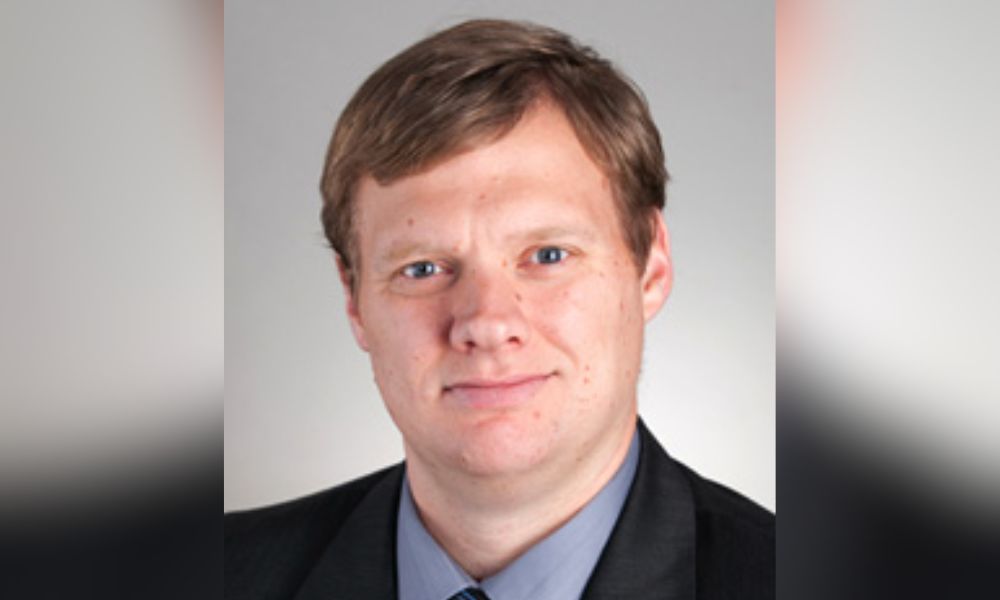
HR leader Rob Ackley on the importance of cultural fit and work-life balance

Company brand and mission matter more now than ever.
That is how the current labor market — and the HR industry — have flipped the norm, said Rob W. Ackley, Executive Vice President, Human Resources and Administration, at Ruffalo Noel Levitz (RNL), a leading provider of higher education enrollment management, student success, and fundraising solutions.
“Candidates are now interviewing companies as much as companies are interviewing talent,” Ackley said in an interview with Human Resources Director. “And that is a change from 20 years ago. It'll be interesting to see if it holds but it is now when you have 3.4% unemployment, you have low labor participation rate, and you have in-demand skills.”
Ackley, who oversees employee relations, benefits administration, talent acquisition, and talent development, has worked at RNL for 24 years. Having first gained an expertise in talent acquisition and talent development, Ackley completed the executive education program at Cornell University.
“I was recruiting and doing work in 2008, 2009, when the tables were absolutely flipped,” Ackley added. “Your employment brand didn't matter in that recession because you had jobs to offer. Therefore, you were able to hire people coming out of that and the subsequent boom. And now employment brand and mission matter. These are the things that ultimately drive a reduction in internal turnover.”
And limiting that turnover is a challenge for any industry.
Ackley cited Twitter as a recent example, noting that despite experiencing significant turnover, their well-known culture creates a higher likelihood of retention among employees who align with their values.
“That’s why the brand and engagement of the company matter,” Ackley said. “We are more selective in what we post and hire for because we know it’s going to be challenging to find the right candidates. So, while we are searching, we also present our culture and values to potential candidates. We are focused on presenting who we are as a business and how that aligns with what we’re looking for. The questions we receive from candidates are increasingly focused on culture and values.”
Beyond the importance of striking that cultural match, Ackley also pointed out that the labor market is shifting; there are 1.7 jobs open for every one person seeking employment — which is better than it was the previous year, at 2.1 jobs per job seeker. Another major shift has been that most candidates looking for jobs are already employed, compared to the past when people who were looking for jobs were out of work.
“If the market were to turn and unemployment rates increased, we wouldn’t change our approach,” Ackley said.
“We understand the importance of presenting our culture and finding a cultural fit regardless of market conditions. It's crucial for reducing turnover and maintaining strong connections with our employees. Mismatches between expectations and reality can lead to problems, so we prioritize upfront alignment. Therefore, even if the market changes, we don't foresee altering our branding approach or how we communicate who we are as a company.”
One of the ways that Ackley and RNL have found to cultivate an appealing work culture is to strike the right work-life balance. Ackley literally wrote the book on work-life balance, entitled Seesaw Strategy.
“I think the importance of work-life balance is No. 1,” he said. “From an HR perspective, we absolutely want to have employees who are energized and excited and have their work ideas and their energy there. And we all know that a great way to do that is through having well-rounded employees and people who are not necessarily dealing with home stress and work stress. Everybody has (these stresses), but we can support that.”

Ackley said the current definition of a good work-life balance has also evolved over the last 20 years. That process of evolution was sped up through the COVID-19 pandemic and the subsequent wave of resignations, often referred to as The Great Resignation, that followed.
“First and foremost, people have been through a lot,” he said. “People have refocused priorities, what they want from their position, what they want from work, what they want from family, where they want to live, how they want to work.”
Luckily, RNL had the infrastructure in place to support remote workers. Out of 600 employees, only 200 of them currently live in Cedar Rapids, Iowa, where RNL is headquartered.
As the way we connect and do business has evolved, so has the HR industry.
Ackley said the future of HR is bright—and will likely include the emergence of AI.
“There are a lot of exciting possibilities on how we can augment what we’re doing, how we can use it to get the best out of people and support them and what they do. Does it have risk? Does it have disruptive capability? Of course. But every technological advancement does. Everything we’ve ever had since the Industrial Revolution, has had those kinds of things.”
Despite technological advancement, the human factor is a constant in the HR industry that remains unchanged, he added.
“HR is usually at the forefront of dealing with the human factor of that and how we can help people and how we can again make their positions and what they do more meaningful and engaged.”